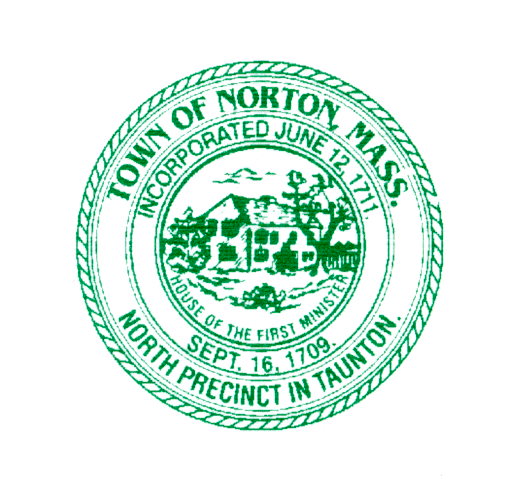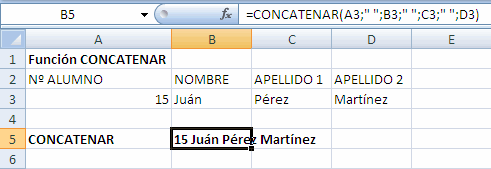CENTRAL EUROPEAN UNIVERSITY DEPARTMENT OF GENDER STUDIES 7 REIMAGINING
2 42ª SESIÓN RUSIA ASIA CENTRAL YADMINISTRACIÓN TRIBUTARIA CENTRAL ES EFICIENCIA I INTRODUCCIÓN EL
BANCO CENTRAL DE BOLIVIA DOCUMENTO BASE DE
CENTRAL AMERICAN CAPITALS MEXICO CITY IS THE
IUNIVERSIDAD CENTRAL DEL ECUADOR FACULTAD DE JURISPRUDENCIA CIENCIAS
MANAGEENGINE DESKTOP CENTRAL TRAINING COURSE OBJECTIVES WHO
Re-imagining Social Movements: Activism, Resistance, and Cultural Change
Central European University,
Department of Gender Studies
Re-imagining Social Movements: Activism, Resistance, and Cultural Change
GENS 5375
MA Level Class
Fall 2016
Hadley Z. Renkin Office: Zrínyi 512
[email protected] Office Hours: TBA
Class Time: MW 1:30-3:10pm
Place: TBA
Course Description
Social movements and social activism are critical to political engagement and social transformation. Traditional social science approaches to social movements and social change have tended to frame forms of collective resistance and protest primarily as either irrational, spontaneous reactions to oppression, or as rational expressions of reasoned dissent. In this course, we will challenge such views, employing an anthropological perspective which takes cultural practice as analytically central in order to see social movements instead as practical struggles over cultural meaning. We will first critically review the dominant theoretical frameworks which have shaped interpretations of social activism and social movements. We will then explore more recent theories of power, politics, and social change, in order to locate social movements within complex cultural structures of power, domination, and transformation. For each segment of the class, we will first examine a specific theoretical framework from which questions of social actions, movements, and change have been addressed. We will then go on to explore, through concrete ethnographic examples, the ways in which these perspectives enable - and foreclose - particular understandings of the nature of social movements, and of their implications.
Learning Outcomes
Students will learn to analyze the theoretical assumptions leading to certain interpretations of social movements and their causes and consequences, and to better grasp the social, cultural, and political complexities foundational to collective forms of social action.
Student Responsibilities
This is a discussion-based course, not a lecture course. It will, therefore, require a great deal of responsibility on the part of all of you. For each class, I will first introduce and contextualize the week’s topic. We will then, as a class, map out the central theoretical and analytical moves presented by the day’s readings, their specific arguments, and the relationships between them. The remainder of the class will be an open discussion of these arguments and their implications – in which I will occasionally mediate or intervene. Thus, all of you will be expected to analyze, express your opinions about, and debate the assigned materials in depth.
Assessment
Requirements:
Papers:
1) Critical Comments.
During the course of the term, each of you will write two (2), 2-3 page Critical Comments, each for a class of your choice. The Comment may focus on a single reading, or compare more than one reading from that day’s assigned materials.
These Comments are meant to stimulate your/our thinking and questioning of specific issues, and to enable all of us to address the topic more effectively; they are therefore critical to successful discussion in the class. In this sense (as, indeed, in all others), a great deal of responsibility for the success or failure of this course lies in your hands. The two comments together will be worth 40% of your final grade for the course.
Each Critical Comment should contain (but need not be limited to) the following elements:
1. CORE QUOTATION. You should quote a sentence or short passage from the text that you think is central to the main argument of the piece. Be sure to always cite the quotation properly.
2. ARGUMENT. Briefly, summarize the author’s main argument.
3. QUESTION. Raise a question about a point (not a fact!) you feel is not adequately accounted for, or supported, in the argument.
4. PERSONAL CONNECTION. Consider briefly how the argument made in the article fits or challenges your previous thinking about social movements/politics.
5. ANALYTICAL RELATION. Compare this argument with another you have come across, either in this course or in your previous study. Summarize briefly this previous argument (citing it properly), and explain how the present piece’s argument contrasts with it, or casts new light on the issues they have in common.
6. IMPLICATIONS. Discuss the potential implications that you see the current argument to have for our more general understanding of society and social change.
Critical Comments should not exceed three typed, double-spaced pages.
Critical Comments should be sent to me via email by midnight the night BEFORE the relevant class.
2) Final Paper
The final paper for the class will be a 10-12 page (double-spaced) critical review paper. Each of you will pick a recent rebellion, revolution, or social movement – whichever has interested or inspired you most in the last several years. You will then select 3-4 key examples of current scholarly literature on your movement, and conduct a critical analysis of the ways the diverse theories and assumptions about the basis and nature of social movements we will explore in this course underpin and are manifest in their interpretations – and the potential implications this has for our understandings of the causes and consequences of such movements.
Around the middle of the semester, each of you will meet with me in order to choose your topic and discuss the determination of the most appropriate readings for and approaches to the paper.
The Final Paper will be worth 30% of the total course grade.
N.B.: The paper will be due on the last day of class; late papers will not be accepted.
Grading:
General participation in class discussions will count for 30% of your grade. Reaction papers (together) will be worth 40%, and the final paper 30% of the total course grade.
Class Schedule:
Part One - Background: Traditional Approaches to Social Movements and Social Change
Week 1. Class-based Politics and Movements
Day 1 Theory:
Marx, Karl. 1978 [1852]. Excerpt from The 18th Brumaire of Louis Bonaparte, in The Marx-Engels Reader (2nd edition). Robert C. Tucker, ed. New York: WW Norton, pp. 594-617.
Marx, Karl. 1977 [1888]. Excerpt from Manifesto of the Communist Party, in Karl Marx-
Selected Writings. David McLellen, ed. New York: Oxford University Press, pp. 221-238.
Day 2 Application:
Kalb, Don. 2014. “‘History Repeats Itself’: Subversive Insights of a Polish Populist” in Does East Go West? Anthropological Pathways Through Postsocialism. Christian Giordano, Francois Ruegg, and Andrea Boscoboinik, eds. Zurich: LIT Verlag, pp. 109-130.
Week 2. Collective Action and Mass Psychology
Day 1 Theory:
Durkheim, Émile. 1966 [1895]. “What is a Social Fact?” in Rules of Sociological Method. New York: Free Press, pp. 1-13.
Reich, Wilhelm. 1970 [1933]. Ch 1 “Ideology as a Material Force”, in The Mass Psychology of Fascism. London: Souvenir Press, pp. 3-33.
Day 2 Application:
Arendt, Hannah. 1951. Ch 10 “A Classless Society” in The Origins of Totalitarianism. New York: Harcourt Brace Jovanovich, pp. 305-340.
Tiryakian, Edward A. 1995. “Collective Effervescence, Social Change, and Charisma: Durkheim, Weber, and 1989.” International Sociology 10(3): 269-281.
Week 3. Civil Society, Agency, and the Politics of Intention
Day 1 Theory:
Cohen, Jean and Anthony Arato. 1992. “Introduction” to Civil Society and Political Theory. Cambridge, MA: MIT Press, pp. 1-26.
McCarthy, John D. and Mayer Zald. 1977. “Resource Mobilization and Social Movements: A Partial Theory.” American Journal of Sociology 82 (6, May): 1212-1241
Day 2 Application:
Morris, Aldon D. 1984. “Introduction”, Ch 1 “Domination, Church, and the NAACP”, Ch 8 “Internal Organization and Direct Action”, and Ch 9 “1960: Origins of a Decade of Disruption”, in The origins of the civil rights movement: Black communities organizing for change. New York: Free Press, pp. ix-xiv, 1-16, 174-194, 195-228.
Week 4. New Social Movements and the Politics of Identity
Day 1 Theory
Taylor, Charles. 1994. “The Politics of Recognition” in Multiculturalism. Gutmann, Amy, ed. Princeton, NJ: Princeton University Press, pp. 25-73.
Day 2 Application:
Rich, Adrienne. 1980. "Compulsory Heterosexuality and Lesbian Existence" Signs:
Journal of Women in Culture and Society, 5 (4, Summer): 631-660.
Taylor, Verta and Nancy E. Whittier. 1992. “Collective Identity in Social Movement Communities: Lesbian Feminist Mobilization” in Frontiers in Social Movement Theory. Aldon D. Morris and Carol McClurg Mueller, eds. New Haven, CT: Yale University Press, pp. 104-129.
Part Two - Re-imagining: Social Movements as Emergent Cultural Practices
Changing Understandings of Power/Politics
Week 5
Day 1 Theory:
Foucault, Michel. “Method”, from The History of Sexuality, Vol. 1. New York: Vintage, pp. 92-102.
Scott, James. 1990. Ch 1, “Behind the Official Story”, Ch 7 “The Infrapolitics of Subordinate Groups”, and Ch 8 “A Saturnalia of Power: the first Public Declaration of the Hidden Transcript”, in Domination and the Arts of Resistance: Hidden Transcripts. New Haven, CT: Yale University Press, pp. 1-16, 183-201, 202-228.
Day 2 Application:
Alonso, Ana Maria. 1988. “‘Progress’ as Disorder and Dishonor: Discourses of Serrano Resistance.” Critique of Anthropology 8(1): 13-33.
Klein, Naomi. 2005. “Culture Jamming”, in The Global Resistance Reader. Louisa Moore, ed. London: Routledge, pp. 437-444.
Week 6
Day 1 Mosse, George. 1985. Ch 1 “Introduction”, Ch 2 “Manliness and Homosexuality”, and Ch 3 “The Rediscovery of the Human Body”, in Nationalism and Sexuality: Middle Class Morality and Sexual Norms in Modern Europe. Madison: University of Wisconsin Press, pp. 1-22, 23-47, and 48-65.
Day 2 De Grazia, Victoria. 1992. Ch 8, “Women’s Politics in a New Key”, in How Fascism
Ruled Women: Italy, 1922-1945, pp. 234-271.
Challenges to Identity
Week 7
Day 1 Theory:
Hall. S. 1992. “The Question of Cultural Identity” in Modernity and Its Futures. Hall and McGrew, eds. Cambridge: Polity Press, pp. 596-632.
Day 2 Application:
Cohen, Cathy. 2004. “Deviance as Resistance: A New Research Agenda for the Study of Black Politics.” Du Bois Review 1(1): 27–45.
Week 8
Day 1
Cohen, Peter. 1997. “‘All They Needed’: AIDS, Consumption, and the Politics of Class”. Journal of the History of Sexuality 8 (July): 86-115.
Day 2
Sylvain, Renée. 2005. “Land, Water, and Truth”: San Identity and Global Indigenism” in Social movements: an anthropological reader. June Nash, ed. Malden, MA: Blackwell, pp. 216-33.
Albro, Robert. 2005. “‘The Water is Ours, Carajo!’ Deep Citizenship in Bolivia’s Water War” in Social movements: an anthropological reader. June Nash, ed. Malden, MA: Blackwell, pp. 249-71.
Politics as Practice/Performance
Week 9
Day 1 Theory:
de Certeau, Michel. 1984. Chapter 2 “Popular Cultures: Ordinary Languages” and Chapter 3: “Making Do: Uses and Tactics” in The Practice of Everyday Life. Berkeley: University of California Press, pp. 15-28, 29-42.
Day 2 Application:
Stella, Francesca. 2012. “The Politics of In/Visibility: Carving Out
Queer Space in Ulyanovsk” Europe-Asia Studies 64(10): 1822–1846.
Kulick, Don, and Charles Klein. 2009. “Scandalous Acts: The Politics of Shame Among
Brazilian Transgendered Prostitutes.” in Gay Shame, David Halperin and Valerie Traub, eds. Chicago: Chicago University Press, pp. 312-38.
Week 10
Day 1 Kenney, Padraic. 2002. Ch 5 “”How the Smurfs captured Gargamel, or, A Revolution of
Style”, and excerpt from “Epilogue”, in Carnival of Revolution: Central Europe 1989. Princeton, NJ: Princeton University Press, pp. 157-91, 298-306.
Day 2 Szemere, Anna. 2000. “We’ve Kicked the Habit” in in Altering States. Ethnographies of Transition in Eastern Europe and the Former Soviet Union. Berdahl, Daphne, M. Bunzl and M. Lampland, eds. Ann Arbor: University of Michigan Press, pp. 158-80.
film: “Dübörög a nemzeti rock” [Rocking the Nation] (2007)
Movements and Borders: Globalizing Culture/Politics
Week 11
Day 1 Theory:
Appadurai, Arjun. 1991. “Global Ethnoscapes: Notes and Queries for a Transnational Anthropology”, in Recapturing Anthropology: Working in the Present. Richard Fox, ed. Sante Fe: School of American Research Press, pp. 191-210.
Tsing, Anna. 2005. “Introduction” in Friction: An Ethnography of Global Connection. Princeton, NJ: Princeton University Press, pp. 1-20.
Day 2 Application:
Howe, Cymene. 2009. “The Legible Lesbian: Crimes of Passion in Nicaragua” Ethnos 74(3): 361-78.
Cerwonka, Allaine. 2008. “Traveling Feminist Thought: Difference and Transculturation
in Central and Eastern European Feminism.” Signs: Journal of Women in Culture and Society 33(4): 809-32.
The Politics of Emotion/Affect
Week 12
Day 1 Theory:
Gould, Deborah. 2010. “On Affect and Protest”, in Political Emotions: New Agendas in Communication. Staiger, J., Ann Cvetkovich, and A. Reynolds, eds. London: Routledge, pp. 19-44.
Day 2 Application:
Irvine, Janice. 2008. “Transient feelings: Sex panics and the politics of emotions”. GLQ: A Journal of Lesbian and Gay Studies 14(1): 1-40.
ZAPISNIK SA SASTANKA CENTRALNE IZBORNE KOMISIJE BR
( NUOVO)PARTITO COMUNISTA ITALIANO COMITATO CENTRALE SITO HTTPWWWNUOVOPCIIT EMAIL
(NAZWA JEDNOSTKI WYSTĘPUJĄCEJ) ………………………DNIA………………………R PAN ANDRZEJ STRÓŻNY SZEF CENTRALNEGO
Tags: central european, in central, reimagining, gender, department, university, central, studies, european
- SEPTEMBER 2014 IEEE P80219140062R0 IEEE P80219 WIRELESS COEXISTENCE PROJECT
- MANUAL DE CONCEPTOS FINANCIEROS ¿QUÉ ES EL VALOR FUTURO
- 7 HH 3311 HC 774810 ALAN MCGREGOR VERSUS NEHEMIAH
- CCPRC106D15482007 联 合 国 CCPRC106D15482007 公民权利和政治权利 国际公约 DISTR GENERAL
- DIBUJO TÉCNICO – CUERPOS SÓLIDOS POLIEDROS REGULARES 2º
- ORDENANZA N° 10650 V I S T O
- ORGANISATION DE COOPÉRATION ET DE DÉVELOPPEMENT ÉCONOMIQUES OECD OCDE
- M UNICIPALIDAD DE EL PALMAR DEPARTAMENTO DE QUETZALTENANGO GUATEMALA
- ROLNICTWO NA TERENACH WIEJSKICH WOJEWÓDZTWA ŻYJE BLISKO 998
- ANEXO II DECLARACIÓN RESPONSABLE DE IDONEIDAD COMPATIBILIDAD Y AUSENCIA
- PAGE 1 OF 7 HOW BABIES ARE MADE MUSIC
- GLAAS 20162017 ONUAGUA RETROALIMENTACIÓN DEL PAÍS GRACIAS POR LLENAR
- APLICACIÓN DEL CTE UN PROYECTO DE AGREGACIÓN Y
- Programacion Didáctica Educación Física ies “valentín Turienzo” “mens Sana
- EN LAS RUINAS DE LOS ESTUDIOS AIR DE GEORGE
- SUBCONTRACTOR DECLARATION – 2020 THE PURPOSE OF THIS DECLARATION
- MODÈLE D’ATTESTATION DE FONCTION BÉNÉVOLE (LA DÉLIVRANCE DE CETTE
- LPHL2 THE NATURE OF ELECTROMAGNETIC WAVES LIGHT CONSISTS OF
- CHARITY ADVERTISING REQUEST FOR ZERORATING THIS FORM SHOULD BE
- PREBIRTH TO THREE DOCTOR MARIA ROBINSON LANGUAGE DEVELOPMENT
- POZNAŃ 15032016R WIELKOPOLSKI WOJEWÓDZKI KONSERWATOR ZABYTKÓW PO161297892 2016 PAN
- USING MAGNITUDE ESTIMATION IN LANGUAGE ACQUISITION RESEARCH ANTONELLA SORACE
- REJESTRACJA POJAZDU Z TEGO SAMEGO TERENU – BEZ ZMIANY
- L AS UE ORMOŽ VABILO VABIMO VAS NA DELAVNICO
- KOMÁROMI NAPOK 2008 (FÉLKÖVÉRREL A DÉLKOMÁROMI DŐLT BETŰVEL AZ
- SOLICITUD1 DE BÚSQUEDA DE DATOS DE PERSONAS DESAPARECIDAS DURANTE
- POWERPLUSWATERMARKOBJECT3 UNIVERZITET U SARAJEVU PRAVNI FAKULTET OSNOVI PRAVA INTELEKTUALNOG
- LG TRAUNSTEIN URTEIL VOM 06102004 1 HK O
- COMISIÓN DE ESTUDIOS LEGISLATIVOS Y PUNTOS CONSTITUCIONALES H CONGRESO
- A NIEUWSBRIEF 3 SEPTEMBER 2013 AN DE BEWONERS VAN
KWESTIONARIUSZ REKRUTACYJNY POZ – VI EDYCJA KWESTIONARIUSZ REKRUTACYJNY UCZESTNICTWA
 CRITERI PER LA DETERMINAZIONE DELLA VALUTAZIONE DEGLI APPRENDIMENTI NELLE
CRITERI PER LA DETERMINAZIONE DELLA VALUTAZIONE DEGLI APPRENDIMENTI NELLE GÉNERO LÍRICO LA LITERATURA QUECHUA MARCÓ DOS ESTAMENTOS
GÉNERO LÍRICO LA LITERATURA QUECHUA MARCÓ DOS ESTAMENTOS TOWN OF NORTON STORMWATER PERMIT APPLICATION STORMWATER MANAGEMENT BYLAW
TOWN OF NORTON STORMWATER PERMIT APPLICATION STORMWATER MANAGEMENT BYLAWITEM 6 SCRUTINY PANEL – 20 NOVEMBER 2006 THREE
OBRAZLOŽENJE PRIJEDLOGA FINANCIJSKOG PLANA ZA RAZDOBLJE 2019 2021
 REGIONALNA RAZVOJNA AGENCIJA POSAVJE JAVNI RAZPIS ZA IZBOR DIREKTORJA
REGIONALNA RAZVOJNA AGENCIJA POSAVJE JAVNI RAZPIS ZA IZBOR DIREKTORJAYEMİN BELGESİ TÜRKIYE CUMHURIYETI ANAYASASINA ATATÜRK INKILAP VE ILKELERINE
HOJA DE INSCRIPCIÓN PARA TODAS LAS ACTIVIDADES EXCEPTO TRX
 PAMPLONA LUNES 25 DE NOVIEMBRE 2013 NOTA DE PRENSA
PAMPLONA LUNES 25 DE NOVIEMBRE 2013 NOTA DE PRENSA AHRC475 PÁGINA 17 NACIONES UNIDAS A ASAMBLEA GENERAL DISTR
AHRC475 PÁGINA 17 NACIONES UNIDAS A ASAMBLEA GENERAL DISTRBILL ANALYSIS OFFICE OF HOUSE BILL ANALYSIS HB 64
 TITLE SO YOU WANT TO COMPOSE – WHAT WILL
TITLE SO YOU WANT TO COMPOSE – WHAT WILL PROFESSOR PONTUS TROBERG HANKEN SCHOOL OF ECONOMICS EDUCATION PHD
PROFESSOR PONTUS TROBERG HANKEN SCHOOL OF ECONOMICS EDUCATION PHDZAHTJEV ZA PRODUŽENI BORAVAK U OSNOVNIM ŠKOLAMA PODNOSITELJ ZAHTJEVA
¿CUAL ANIMAL NO PERTENECE? HAZ UN CÍRCULO EN EL
RAD SA KOMPONENTAMA UDŽBENIK HTTPZAVODCORSINDEXPHP?ROUTEPRODUCTPRODUCT&PRODUCTID4543 1 NAPRAVITI APLIKACIJU KOJA
 MEASURING NONSTANDARD UNITS NAME CHOOSE 1 UNIT AND
MEASURING NONSTANDARD UNITS NAME CHOOSE 1 UNIT ANDTC ÇARŞIBAŞI BELEDİYESİ MECLİS KARAR KAĞIDI KARAR TARIHI
 CURSO DE EXCEL 2007 AVANZADO POR EMAIL PROFESOR LUIS
CURSO DE EXCEL 2007 AVANZADO POR EMAIL PROFESOR LUIS